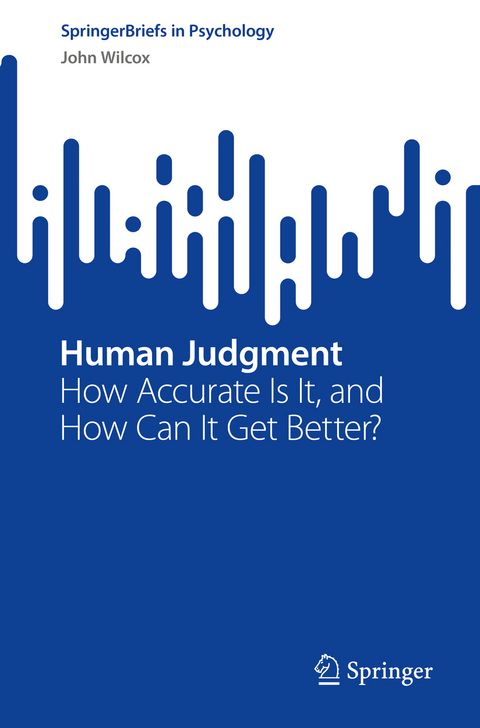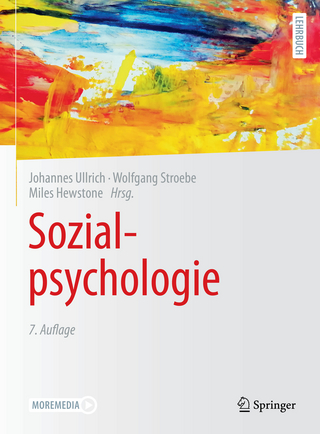
Human Judgment
Springer International Publishing (Verlag)
978-3-031-19204-3 (ISBN)
John Wilcox is an epistemologist, cognitive scientist and postdoctoral fellow at Stanford University. There, he was awarded the highly competitive Stanford Interdisciplinary Graduate Fellowship to complete his PhD in psychology and philosophy, including experimental and conceptual work on the accuracy of human judgment. He also holds Bachelor’s and Master’s degrees in philosophy, statistics and political science from the University of Auckland, where he was awarded the senior scholar award in the Faculty of Arts and the first-place prize in political studies and international relations. He has lectured and taught for numerous courses in philosophy and social science at Stanford University, the University of Melbourne and the University of Auckland. Aside from his teaching, he has also worked on various projects to improve reasoning at the University of Melbourne. His single and co-author publications have appeared in various academic outlets, including the Stanford Encyclopedia of Philosophy.
1. Introduction.- 2. What We Think: The Accuracy of our Judgments.- 3. How We Evaluate Our Thinking: The Accuracy of our Metacognition.- 4. How We Think: The Rationality of Our Reasoning.- 5. How We Were Made: The Evolutionary Origins of Thought.- 6. The Origins of Empirical Epistemology.- 7. Insights from Empirical Epistemology.- 8. Conclusion: Applying Empirical Epistemology.
| Erscheinungsdatum | 04.01.2023 |
|---|---|
| Reihe/Serie | SpringerBriefs in Psychology |
| Zusatzinfo | XII, 148 p. 5 illus., 4 illus. in color. |
| Verlagsort | Cham |
| Sprache | englisch |
| Maße | 155 x 235 mm |
| Gewicht | 237 g |
| Themenwelt | Geisteswissenschaften ► Psychologie ► Arbeits- und Organisationspsychologie |
| Geisteswissenschaften ► Psychologie ► Biopsychologie / Neurowissenschaften | |
| Geisteswissenschaften ► Psychologie ► Psychoanalyse / Tiefenpsychologie | |
| Geisteswissenschaften ► Psychologie ► Sozialpsychologie | |
| Schlagworte | accuracy • biases • Decision Making • judgement • Medical Diagnosis • Rationality |
| ISBN-10 | 3-031-19204-4 / 3031192044 |
| ISBN-13 | 978-3-031-19204-3 / 9783031192043 |
| Zustand | Neuware |
| Haben Sie eine Frage zum Produkt? |
aus dem Bereich


